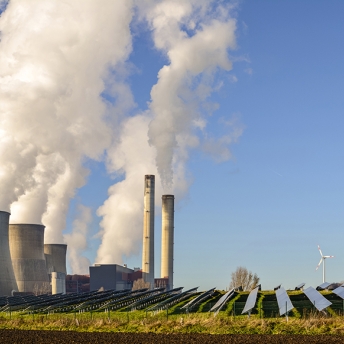Yvonne Fuller
Principal
Yvonne provides energy companies with robust upstream and midstream economic analysis in complex strategy and litigation cases.

Areas of Focus
Past Experience

Yvonne is a Principal at Arthur D. Little, based in our London office, and a member of our global energy practice, focusing on energy economics.
Since joining Arthur D. Little in 2002, Yvonne has worked on oil and gas market modeling throughout the value chain, including upstream, LNG, gas pipelines, trading and retail.
Over the past decade, the majority of her work has been in dispute resolution, focused on supporting upstream and midstream arbitrations and litigations in Europe, North Africa, Asia and the Middle East.
Yvonne started her career as an energy analyst in 1998.

Where to go from here: The race for decarbonization

Analysis of the proposed gas directive amendment

LNG still in transit

America First: carbon emissions go last?

Unlocking global LNG market value

Yvonne is a Principal at Arthur D. Little, based in our London office, and a member of our global energy practice, focusing on energy economics.
Since joining Arthur D. Little in 2002, Yvonne has worked on oil and gas market modeling throughout the value chain, including upstream, LNG, gas pipelines, trading and retail.
Over the past decade, the majority of her work has been in dispute resolution, focused on supporting upstream and midstream arbitrations and litigations in Europe, North Africa, Asia and the Middle East.
Yvonne started her career as an energy analyst in 1998.

Where to go from here: The race for decarbonization

Analysis of the proposed gas directive amendment

LNG still in transit

America First: carbon emissions go last?

Unlocking global LNG market value
More About Yvonne
- PA ConsultingConsultant
- PHB Hagler BaillyConsultant
- Putnam, Hayes & BartlettAnalyst
